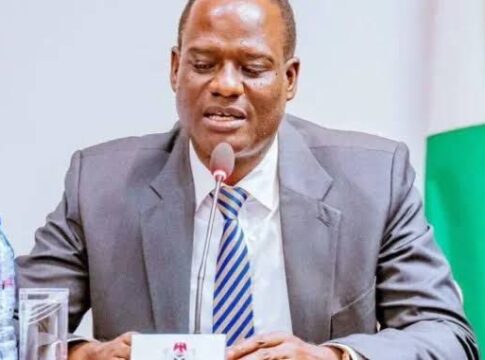Nigerians stand to benefit from a fairer and more efficient tax system, according to Taiwo Oyedele, Chairman of the Presidential Committee on Fiscal Policy and Tax Reforms.
He dismissed claims that the committee failed to consult widely, particularly with state governors, accusing the Nigerian Governors’ Forum (NGF) of canceling scheduled meetings four times. “We remain open to dialogue,” he emphasized during an interview on Arise Television.
Oyedele highlighted the committee’s extensive consultations, revealing that it met over 120 clerics, primarily from the north, and engaged with the League of Northern Democrats to explain the proposed tax reforms. “We have worked tirelessly to ensure inclusivity,” he said, stressing that the reforms are vital for Nigeria’s economic future.
READ MORE: Over 10 Million Nigerian Children Registered in 2024, Says NPC Chairman
Elder statesman Buba Galadima, however, accused the panel of bias, alleging the bills favor Lagos and Ogun states while neglecting others. He also claimed that some committee members disowned the final report, a charge Oyedele firmly denied. “No member of the committee has rejected our work. Such statements are baseless and misleading,” Oyedele countered.
The reforms, encapsulated in four transformative bills, seek to revamp Nigeria’s tax system. These include the Nigeria Tax Bill 2024, Tax Administration Bill, Nigeria Revenue Service Establishment Bill, and Joint Revenue Board Establishment Bill. Among their provisions is a shift to a derivation-based model for Value Added Tax (VAT) distribution, which northern governors have rejected, citing potential revenue losses.
Oyedele defended the reforms, explaining their urgency. “Nigeria doesn’t have the luxury of time. These reforms will relieve pain and set us on the path to development,” he said. The panel conducted over 40 sectoral engagements and collaborated with representatives from academia, the private sector, and government institutions to craft the bills.
Despite challenges, Oyedele underscored the importance of maintaining a unified tax system to prevent chaos. He argued that a state-based VAT collection model would harm businesses and create inequality. “If states begin collecting VAT independently, Lagos will be the biggest loser. We aim for a balanced approach that benefits all,” he stated.
Responding to criticism, Oyedele lamented that some stakeholders were using the reforms as a proxy for other agendas. “How does disagreeing with two sections justify withdrawing four transformative bills? Let’s debate and refine the provisions instead,” he urged.
He expressed gratitude for President Bola Tinubu’s support, describing him as an accessible and insightful leader. “In 10 to 15 minutes, the president grasps complex issues. He has been incredibly supportive,” Oyedele said.
The committee also engaged religious and community leaders to dispel misinformation. “We met over 120 Ulamas and explained the reforms. Many prayed for our success after understanding our intentions,” he recounted. Similarly, discussions with the League of Northern Democrats reflected the committee’s commitment to transparency and collaboration.
Oyedele reaffirmed the panel’s readiness to engage all stakeholders, urging Nigerians to view the reforms as a step toward a stronger, more equitable economy. “We’re here to listen, clarify, and refine. This is a national effort, and we need everyone’s support to succeed,” he said.




